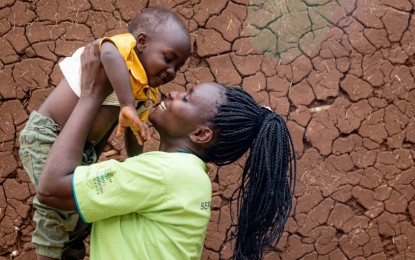
(Photo from WAM)
NEW YORK – United Nations agencies have welcomed a pledge by 12 African countries to end AIDS (acquired immunodeficiency syndrome) in children by 2030, at a meeting in Dar Es Salaam, Tanzania.
The first ministerial meeting of the Global Alliance to end AIDS in children marked a step-up in action to ensure all boys and girls with HIV can access life-saving treatment, and that HIV (human immunodeficiency virus)-positive mothers can have babies free from the virus.
Ministers and representatives laid out plans, which include providing testing to more pregnant women and linking them to care, as well as finding and caring for infants and children living with HIV.
Currently, around the world, a child dies from AIDS-related causes every five minutes.
According to the UN News center, roughly half of children living with HIV, 52 percent, are on life-saving treatment, whereas 76 percent of adults are receiving antiretrovirals, which the World Health Organization (WHO) has described as “one of the most glaring disparities in the AIDS response.”
Furthermore, although children comprise just 4 percent of people living with HIV, they account for 15 percent of all AIDS-related deaths.
The UN Children’s Fund (Unicef) welcomed the leaders’ commitments and pledged the agency’s full support.
Every child has the right to a healthy and hopeful future, said Unicef Associate Director Anurita Bains, adding, "We cannot let children continue to be left behind in the global response to HIV and AIDS.”
The Global Alliance to end AIDS in children was unveiled at the AIDS conference in Montréal, Canada, in July 2022.
The outcome of its first ministerial meeting, the Dar-es-Salaam Declaration for Action to end AIDS in Children, was endorsed unanimously.
UNAIDS believes that progress is possible, as 16 countries and territories have already been certified for validation of limiting mother-to-child transmission of HIV and/or syphilis.
While HIV and other infections can be transmitted during pregnancy or breastfeeding, prompt treatment, or pre-exposure prophylaxis (PrEP) for at-risk mothers, can interrupt the process.
Last year, Botswana became the first African country with high HIV prevalence to be validated as being on the path to eliminating vertical transmission of HIV, meaning the country had fewer than 500 new HIV infections among babies per 100,000 births.
The vertical transmission rate in Botswana is now 2 percent, versus 10 percent a decade ago. (WAM)
